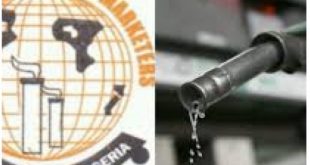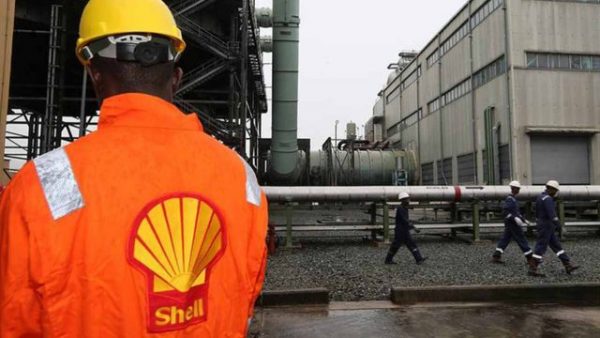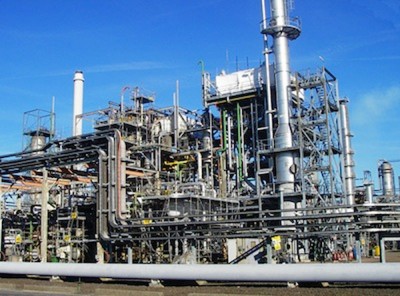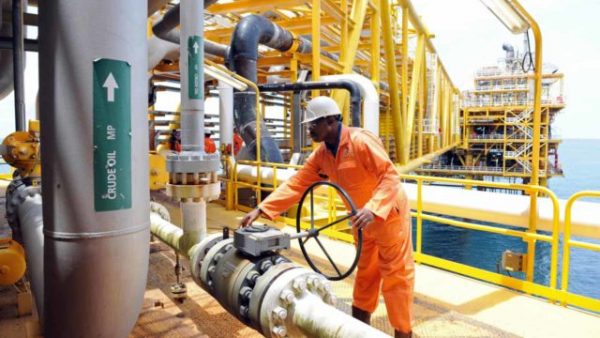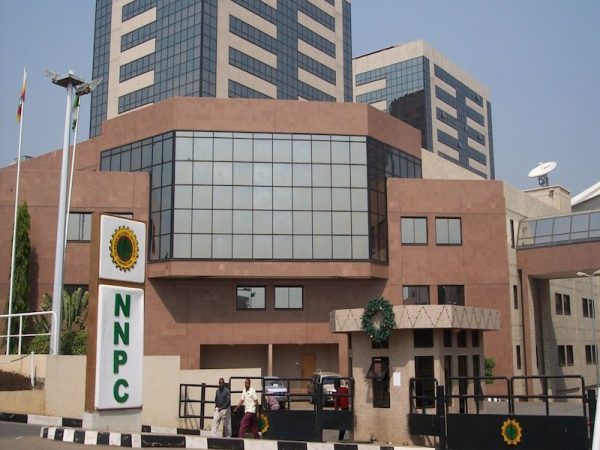 The Nigerian National Petroleum Corporation may have returned to its old loss-making operation after the positive performance it recorded between February and July this year, writes Chineme Okafor
The Nigerian National Petroleum Corporation may have returned to its old loss-making operation after the positive performance it recorded between February and July this year, writes Chineme Okafor
For six months – between February and July 2018, the NNPC recorded trading surpluses from its operations after so many periods of recording deficits on its operations.
However, it could not sustain the feat after the sixth month and has thus slipped into making losses once more.

Looking more like a tradition of the state run oil company, the recently released August 2018 edition of the monthly financial and operations report of the NNPC, disclosed that the corporation has reversed its profit-making trend with a N3.90 billion operational deficits incurred within the period.
The report showed that from N16.72 billion surplus in February; N11.73 billion in March; N17.16 billion in April; N18.12 billion in May; N7.15 billion in June; and N4.88 billion in July, the NNPC came down to recording a N3.90 billion trading deficit in August.

Interestingly, the corporation recorded the surpluses when Brent crude oil traded at an average of $65.32 per barrel in February; $66.02 in March; $72.11 in April; $76.98 in May; $74.4 in June; $74.25 in July, and then the deficit when oil traded at $72.53 in August.

Brent Crude is the world’s leading price benchmark for Atlantic basin crude oils. It is used to price two thirds of the internationally traded crude oil supplies.
According to the report, about eight of NNPC’s subsidiaries have largely been responsible for the operational deficits recorded in its books.
These subsidiaries have by their weak and unprofitable operations ensured that the profit streak the corporation embarked on in February eventually ended in August, despite the healthy prices of crude oil in the international market.
From the report obtained by THISDAY, the subsidiaries with poor operational showings which ended the back-to-back profit records of the NNPC, were the three refineries: Warri, Port Harcourt and Kaduna.
They collectively incurred an operational deficit of N10.79 billion, making them one of the largest loss-making subsidiaries of the corporation.
Following the refineries in the other loss-making record, were subsidiaries such as the Nigerian Pipelines and Storage Company Limited (NPSC) which is charged with the task of building, maintaining and managing petroleum pipeline and storage infrastructure of the NNPC across Nigeria. The NPSC, also manages the transmission and storage of petroleum products by NNPC.
Other loss-making subsidiaries were the NNPC Shipping; the NNPC Ventures and the corporation’s corporate headquarters. Collectively, they contributed to the N3.9 billion deficit the corporation had in August.
In its description of the situation, the NNPC stated: “This 37th edition of the report indicated a trading deficit of N3.90 billion which is 179.87 per cent lower than the previous month’s surplus of N4.88 billion.”
“This drop in performance month-on-month is principally attributable to the drop in performance of NPDC owing largely to revenue decrease and higher expenditure level when compared to previous month in July 2018.”
The corporation’s reasons for the deficit in August were however different from the reasons it gave for a reduced profit in July to N4.88 billion from N7.15 billion in June. It had stated in its July report that its decline in profitability was mainly due to reduction in downstream revenue especially, from its Shipping and NPSC subsidiaries.
Further, a study of the operations reports in the last six month showed that the eight subsidiaries have consistently maintained deficit records in their operations.
Refineries Still Unproductive
Of its subsidiaries that have challenged it the most, the report showed indicated that the refineries have remained tough nuts for the corporation to crack.
Accordingly, they have mostly produced less and incurred more costs to the corporation.
For instance, in its August report, it explained the refineries production amounted to 21.51 million litres of petroleum products as against the 38.64 million litres produced in July 2018. They also incurred an operation loss of N10.79 billion in August.
“The corporation has been adopting a merchant plant refineries business model since January 2017. The model takes cognisance of the products worth and crude costs.
“The combined value of output by the three refineries (at import parity price) for the month of August 2018 amounted to N8.67 billion while the associated crude plus freight costs and operational expenses were N9.78 billion and N9.68 billion respectively.
“This resulted to an operating deficit of N10.79 billion by the refineries.”
Further in the month of August 2018, the report stated that only the Warri and Port Harcourt refineries produced 53,881 metric tons (MT) of finished petroleum products and 8,017MT of intermediate products out of the 56,804MT of crude processed at a combined capacity utilisation of 3.02 per cent compared to 4.83 per cent combined capacity utilisation achieved in the month of July 2018.
It added that the lower operational performance recorded was as a result of the ongoing revamping of the refineries which it noted is expected to further enhance capacity utilisation once completed.
Again, in the month of July, the report stated that the combined value of output by the three refineries (at import parity price) amounted to N13.78 billion while the associated crude plus freight costs and operational expenses were N15.64 billion and N8.59 billion respectively. This thus resulted to an operating deficit of N10.45 billion by the refineries.
According to the July report, only the Warri and Port Harcourt refineries produced 90,872MT of finished petroleum products and 49,350MT of intermediate products out of the 90,872MT of crude processed at a combined capacity utilisation of 4.83 per cent compared to 20.66 per cent combined capacity utilisation achieved in the month of June 2018.
For the month of May 2018, the report noted that the three Refineries produced 214,328MT of finished petroleum products and 131,810MT of intermediate products out of the 378,634MT of crude processed at a combined capacity utilisation of 20.12 per cent compared to seven per cent achieved in the month of April 2018.
It equally noted that the combined value of output by the three refineries (at import parity price) for the month of May 2018 amounted to N58.28 billion while the associated crude plus freight costs and operational expenses were N64.86 billion and N13.5 billion respectively, thus resulting to an operating deficit of N20.09 billion by the refineries.
Except for April, the report stated that the refineries poor showings continued in March and February.
In April, it explained that the three of them produced 252,843MT of finished petroleum products and 177,976MT of intermediate products out of the 127,476MT of crude processed at a combined capacity utilisation of seven per cent.
It equally noted that the combined value of output by the three refineries (at import parity price) for the month of April 2018 according to the report amounted to N33.74 billion while the associated crude plus freight costs and operational expenses were N20.30 billion and N12.52 billion respectively, resulting to an operating surplus of N0.93billion by the refineries.
Experts’ Opinion
Speaking with media on the development, Mr. Dan Kunle, an energy and infrastructure finance expert, stated that the operational current structure of the NNPC does not guarantee it will be profitable in its operations.
Kunle, explained that the NNPC should not be compared with the Nigerian Liquefied Natural Gas (NLNG) Ltd, a company he said has an enviable profit-making model, saying the Nigerian state has not deemed it fit to allow the NNPC operate independently and accountably.
“Yes, I am not surprised at all (that the NNPC is back to operational deficits). NNPC as it is currently configured and managed cannot make profit.
Only NLNG is profitable. All other NNPC subsidiaries are running at a loss because they are managed by NNPC, and NLNG is managed by Shell from Netherlands and others. Until we privatised all the business units in NNPC, it may not make profit,” said Kunle.
Kunle’s views were shared with other experts who suggested that the NNPC may have stopped enjoying the cushion they had from healthy prices of crude oil because of rising shortfalls in its other operations, mostly importation and supply of petrol, as well as, its malfunctioning refineries.
Lagos-based financial advisory company, economic research and analyses firm – Financial Derivatives Company (FDC), stated that Nigeria’s low capacity to locally refine the petrol it uses to run its economy would deny her the benefits she could have gained from the rising price of crude oil, as she spends money subsidising petrol consumption locally.
 MMS PLUS NG – Maritime, Aviation, Business, Oil and Gas News Online Newspaper with coverage in Maritime, Oil and Gas, Aviation, Power and Energy as well as Financial News
MMS PLUS NG – Maritime, Aviation, Business, Oil and Gas News Online Newspaper with coverage in Maritime, Oil and Gas, Aviation, Power and Energy as well as Financial News



